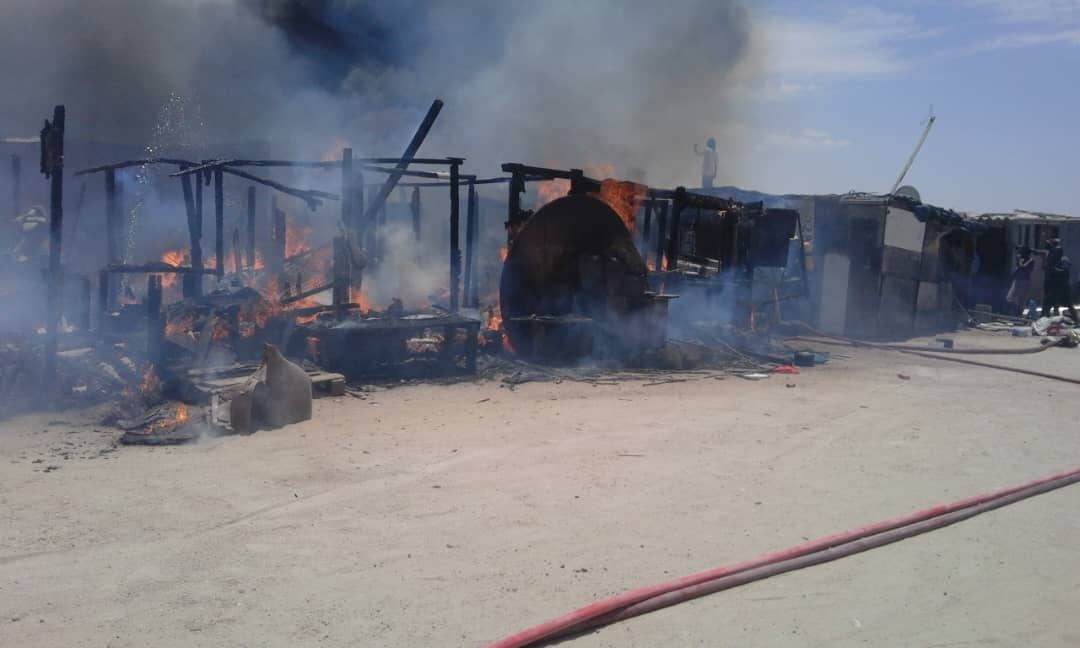EACH January, the country faces the perennial problem of placement of children in schools in Namibia, and it is a sad situation which is allowed to repeat itself again year after year. Anyone who doubts this need only flick back over newspaper headlines for January for this year, and years previous.
January 20 2004: ‘Chaos at Schools: no space for hundreds’. Said this article two years ago: “Hundreds of prospective pupils were turned away at schools in Windhoek and in the North yesterday in a last-minute-effort to find places.As usual, chaos is expected to reign today on the year’s first school day as authorities try to find solutions to the perennial problem of classroom shortages…” January 18 2005: ‘Govt Urges Calm on Schools’.And again the article reads: “Government yesterday appealed for patience from pupils and parents ahead of schools countrywide opening today amidst a several classroom shortage.”Don’t despair.Don’t get frustrated.Let us be patient”, was the message from Basic Education Minister John Mutorwa last year.January 12 2006: ‘Urban Schools Swamped: Minister Mbumba said education officials in battle to avert a crisis’.And this article continues: “Education Minister Nangolo Mbumba has pleaded with parents to be patient as his officials are working around the clock to find places in schools for children …”This just the past three years, and we all know it goes back a lot further than that.The same crisis time after time, with seemingly little done ahead of time to avert these perennial problems.It does, of course, speak volumes about our education system, and the drastic need for reform after investigation to find out why it is not ‘doing the job’ of effectively educating our children, for one thing.Blame can be apportioned all over, and probably there are many contributing factors, but the system itself need overhaul.Language issues, teacher problems, lack of pre-primary education, the automatic pass rate, among others, all have their place in contributing to our overall educational demise.How can a child be promoted just because school authorities think he or she might do better in the next grade? Among the contributing factors is a policy that a pupil cannot repeat a grade more than once.Yet the Ministry of Education denies that there is an automatic-promotion policy.As many times as the media have covered stories about school chaos and the race for places at the start of each school year, so too have we offered suggestions for solutions.After the school year commencement flurry, when all is again quiet, education authorities seem to rest on their laurels, only to be ‘taken by surprise’ again the next year when pupils cannot find places.Suddenly, education officials are working ‘around the clock’ to find solutions to problems they should have solved since the crisis the year before.In some ways the high failure rate seems to be an inherent part of the system, for if over half of Grade 10 pupils did in fact pass, there would be an even more critical situation for Grade 11 admission to schools than is the case at present! It also seems that there are more primary schools than secondary schools – meaning there are always not enough classrooms for the promoted group.Do we need any research to arrive at a solution? There is a need, as soon as the present crisis has been dealt with, for education authorities and all those involved with this most vital of priorities to take stock, in a holistic sense, of what is fundamentally wrong with our system, and to find ways of addressing the problems to avert bigger problems in the future.If we fail to do this, then the situation is going to go from bad to worse each year, further dampening the morale of our youth, and putting employment prospects even further from their reach.Said this article two years ago: “Hundreds of prospective pupils were turned away at schools in Windhoek and in the North yesterday in a last-minute-effort to find places.As usual, chaos is expected to reign today on the year’s first school day as authorities try to find solutions to the perennial problem of classroom shortages…” January 18 2005: ‘Govt Urges Calm on Schools’.And again the article reads: “Government yesterday appealed for patience from pupils and parents ahead of schools countrywide opening today amidst a several classroom shortage.”Don’t despair.Don’t get frustrated.Let us be patient”, was the message from Basic Education Minister John Mutorwa last year.January 12 2006: ‘Urban Schools Swamped: Minister Mbumba said education officials in battle to avert a crisis’.And this article continues: “Education Minister Nangolo Mbumba has pleaded with parents to be patient as his officials are working around the clock to find places in schools for children …”This just the past three years, and we all know it goes back a lot further than that.The same crisis time after time, with seemingly little done ahead of time to avert these perennial problems.It does, of course, speak volumes about our education system, and the drastic need for reform after investigation to find out why it is not ‘doing the job’ of effectively educating our children, for one thing.Blame can be apportioned all over, and probably there are many contributing factors, but the system itself need overhaul.Language issues, teacher problems, lack of pre-primary education, the automatic pass rate, among others, all have their place in contributing to our overall educational demise.How can a child be promoted just because school authorities think he or she might do better in the next grade? Among the contributing factors is a policy that a pupil cannot repeat a grade more than once.Yet the Ministry of Education denies that there is an automatic-promotion policy.As many times as the media have covered stories about school chaos and the race for places at the start of each school year, so too have we offered suggestions for solutions.After the school year commencement flurry, when all is again quiet, education authorities seem to rest on their laurels, only to be ‘taken by surprise’ again the next year when pupils cannot find places.Suddenly, education officials are working ‘around the clock’ to find solutions to problems they should have solved since the crisis the year before.In some ways the high failure rate seems to be an inherent part of the system, for if over half of Grade 10 pupils did in fact pass, there would be an even more critical situation for Grade 11 admission to schools than is the case at present! It also seems that there are more primary schools than secondary schools – meaning there are always not enough classrooms for the promoted group.Do we need any research to arrive at a solution? There is a need, as soon as the present crisis has been dealt with, for education authorities and all those involved with this most vital of priorities to take stock, in a holistic sense, of what is fundamentally wrong with our system, and to find ways of addressing the problems to avert bigger problems in the future.If we fail to do this, then the situation is going to go from bad to worse each year, further dampening the morale of our youth, and putting employment prospects even further from their reach.
Stay informed with The Namibian – your source for credible journalism. Get in-depth reporting and opinions for
only N$85 a month. Invest in journalism, invest in democracy –
Subscribe Now!










